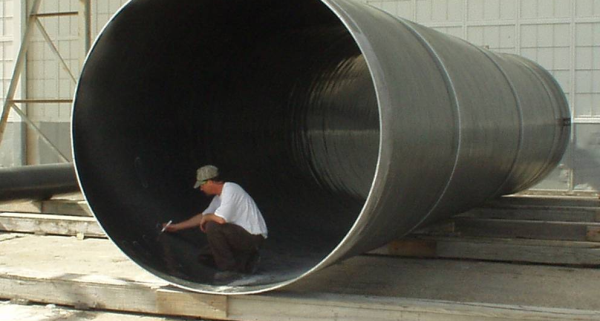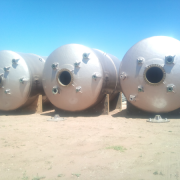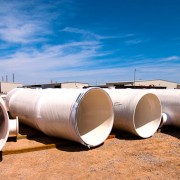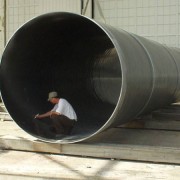Why Isophthalic Polyester Resins are Ideal for Fiberglass Fabrications
Unsaturated type resins, such as polyester resins, are thermoset, capable of being cured under the proper conditions. There are a broad range of polyesters made from different constituents, all having diverse properties—acids, glycols and monomers, for example. Throughout much of the composite or fiberglass industry, in traditional laminating, molding and casting systems two principle types of polyester resins are commonly used, they are orthophthalic polyester resins and isophthalic polyester resins respectively.
As a point of clarification to our audience, this article will address some critical differences between polyester resins which have lead us to select isophthalic polyester resins for the fabrication of fiberglass materials where a polyester type resin has been specified. The scope of this article is limited to polyester resins and will not attempt compare other types of resins in any detail.
Orthophthalic are known throughout the industry as a basic resin; many contend that orthophthalic resins are a lesser product than general-purpose resins. They are typically less expensive than other resin types, such as, isophthalic polyesters, vinyl esters, and epoxies. Their properties portfolio is inferior with respect to strength, chemical resistance and corrosion resistance when compared with other resin types including isophthalic polyesters.
A comparison of polyester resins, reveals that isophthalic have some key advantages over orthophthalic. Isophthalic polyester resins are undoubtedly of a higher-grade and offer substantially higher strength, better flexibility and chemical resistance. To illustrate the important differences further, in laboratory tests, a fiberglass reinforced isophthalic polyester resin panel showed 10% higher flexural and 20% higher tensile properties than a comparable panel using orthophthalic polyester resin.
It is clear that there are substantial differences between isophthalic and orthophthalic polyester resins. At Beetle we recognize those differences and aim to leverage the strengths of isophthalic resins when fabricating fiberglass materials where a polyester type resin has been specified. By leveraging these strengths we are able to optimize the performance of the fiberglass materials and provide you, our customer, with a high-quality, cost-effective materials solution.














